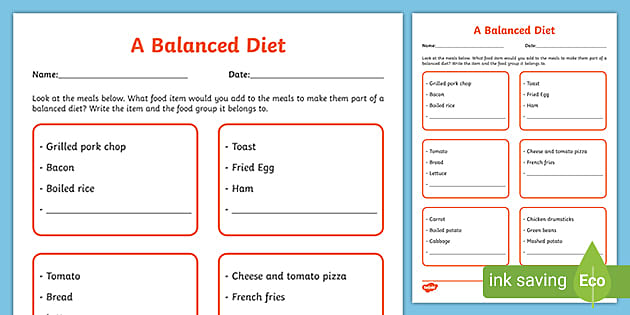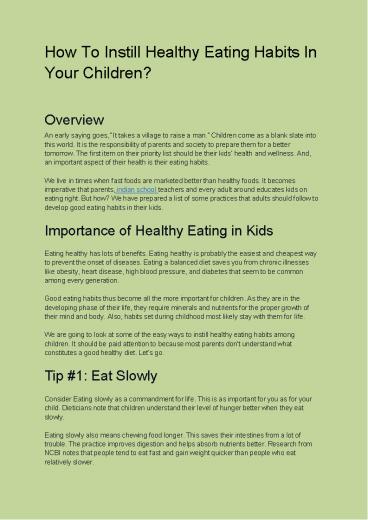
The best ways to prevent diabetes are to live a healthy life and limit your sugar intake. These simple changes will make a significant difference in your overall health, longevity, and quality of life. Losing even a little weight can help delay the onset of diabetes. By following these steps, you can significantly lower your risk of developing the disease. You will live longer if you make these changes. They are very easy to do. These simple habits can be implemented immediately.
For the prevention of this disease, a diet low in fat and high fiber is essential. Saturated fats can be avoided, but consuming more fiber can help you control your blood sugar. Healthy eating is about eating healthy foods rich in fruits and veggies, beans, nuts, and whole grain. And don't forget to incorporate plenty of physical activity into your daily life. Find a new sport that you enjoy each week.

Get enough exercise to lower your likelihood of developing diabetes. Most people find it hard to exercise regularly, so it's imperative to start working out as soon as you can. Try exercising once per week if you are new to the sport. Brisk walking is a great way lose weight and tone the body. If you're a smoker, stop immediately. There's no need to be embarrassed about smoking, as it can increase your risk of getting diabetes.
If you don't want your soda to go, nuts are a good choice. They are rich in protein and healthy oils and can keep you satisfied until dinnertime. They're high in monounsaturated oil, which has been shown that it can reduce the risk for type 2 diabetes. To avoid eating refined carbohydrate-rich junk food, you can chew nuts. Aside from nut-free snacks, consuming walnuts regularly will keep your blood sugar in the normal range and prevent you from snacking.
Reduce sweets intake and reduce carbohydrate intake. To maintain blood sugar levels in control, a high-fiber diet will be beneficial. A healthy diet should include plenty of vegetables. You get more fiber the more vegetables and fruits you eat. Additionally, fiber is a key ingredient in preventing type 2. Regular exercise is the best way to prevent diabetes. Even 30 minutes of moderate exercise each day will prevent you from getting diabetes.

Avoid trans fats and saturated fats. These fats can be very harmful for your health and should not be consumed. Instead, you should consume unsaturated oil like olive oils and fish. Also, quit smoking and alcohol. These can increase blood sugar and cause insulin resistance. You can find diabetes prevention tips here. Share this information with others. You'll be glad you did.
FAQ
What is the best work out for men aged 40+?
Older men often have more energy and stamina when they exercise.
It is important for you to know that over 40s experience a reduction in testosterone which can lead to lower sex drive.
This doesn't mean that you shouldn't still engage in physical activity. Studies have shown that some men can get more testosterone from regular aerobic exercise.
Aerobics can be a good way to improve your sexual performance.
Are you a cardio-exercise fan?
Cardiovascular exercise offers many benefits. It improves blood flow, strengthens your heart muscle and increases stamina.
Cardiovascular exercise includes running, biking, hiking, swimming, tennis, basketball, soccer, volleyball, football, etc.
Cardio exercises should not be done at high intensity. This could cause injury.
Only do the cardio exercise when you are feeling good.
It is important not to push yourself beyond your limits. If you do, you might injure your self.
Cardiovascular exercise is best done warm-up first. Start slowly increasing your intensity.
Listen to your body. If you feel pain during cardiovascular exercise, stop immediately.
It is also recommended to take some time off after a cardiovascular exercise. This allows your muscles to recuperate.
Cardiovascular exercise is a great way to lose weight.
It is the most effective way to burn calories and reduce belly fat.
What is the purpose of milk for men?
Next time you buy milk think about what you could do with it. You might also find it helpful to stop drinking coffee.
Milk has been proven to be beneficial to both children and adults alike. Children get nutrients like vitamin D, calcium and potassium from milk.
It also aids digestion, improves bone strength, and promotes weight gain. Adults who consume dairy products tend to have fewer illnesses and better immune systems.
Milk is also rich in lactose, so people who cannot digest this sugar easily can enjoy its benefits without experiencing stomach problems.
Instead of drinking soda or juice, drink more milk. You can strengthen your teeth with the extra calcium and vitaminD found in milk.
You can make yogurt with plain low-fat milk if you don't love the taste of milk. Yogurt is an excellent alternative to milk because it is lower in calories, and contains more protein.
Yogurt also has probiotics that aid digestion and increase immunity.
Try warm milk to help you fall asleep. Warm milk relaxes muscles and increases serotonin levels, helping you get a good night's rest.
Which is the best order to exercise?
It all depends what you want. If you want to build muscle mass, then do heavy weights first. Next, move on to cardio. If you are looking to lose weight, then move on to strength training.
You can burn fat by just doing cardio. After that, you can add strength training.
You should do cardio last if your goal is to increase muscle mass. This stimulates growthhormones, which helps build muscle mass.
It is important to eat before going to work out. You will be able to give your muscles more fuel so they can work harder. It will also make you feel more energetic during your workouts.
Is it true?
Protein helps maintain healthy bones and tissue. Consuming too much protein can result is calcium excretion via urine. In turn, this can result in kidney stones.
It's important to note that not everyone gets kidney stones after eating more than 2 grams of protein per kilogram (2.2 pounds) of body weight. People can eat large amounts of protein and not get kidney stones.
You can prevent kidney stones by watching your sodium consumption. Sodium regulates the body's water balance. Too much sodium results in a higher risk of developing kidney stones.
You can also try reducing your protein intake if you get kidney stones. Protein accounts for about half the daily caloric requirement of most adults. You'll lose weight if you reduce your intake of protein.
If you do decide to eat more protein, don't go overboard. You should aim to consume less than 20% of your total calories from protein.
Do I have the obligation to exercise every day or just on occasion?
No! No! That could mean walking fast enough for you to get slightly out of breath and biking hard enough for you to sweat.
Statistics
- Candidates and applicants must pass all four tests at 70% (minimum level) to graduate from Basic Deputy U.S. Marshal (BDUSM) Training. (usmarshals.gov)
- According to the American Heart Association, blood pressure should be checked at least once every two years, beginning at age 20. (my.clevelandclinic.org)
- An estimated calorie range for moderately active adult males falls between 2,200 to 2,800 calories per day, depending on age. (eatright.org)
- 10 pounds in a month is likely during a lean bulking phase, especially for beginners. (muscleandstrength.com)
- The PRS enabled risk stratification for overall prostate cancer and lethal disease with a four-fold difference between men in the highest and lowest quartiles (HR, 4.32; 95% confidence interval [CI], 3.16-5.89). (pubmed.ncbi.nlm.nih.gov)
External Links
How To
How can I burn fat and exercise?
Exercise can help you burn calories and increase your metabolism.
Moderate intensity exercise is a safe way to lose weight.
These tips will help you burn fat and keep fit while exercising.
-
Cardio exercises can include running, walking, swimming or cycling.
-
Exercise for 30 minutes three times per week.
-
Add strength training to your workouts if you are looking to lose more weight.
-
Avoid intense training. It's possible to build muscle, but not lose it.
-
When exercising, make sure to drink lots of water. Water helps to flush out toxins from the body and maintains proper hydration.
-
After working out, make sure to drink low-fat proteins shakes. Protein shakes boost energy and repair muscle tissue.
-
Eat smaller meals throughout the day, so you don't feel hungry between meals.
-
Don't skip breakfast! You can feel tired and slow if you skip breakfast.
-
Take care of your mind. Stressful situations may slow down your metabolism.
-
Keep a positive attitude. Studies show that people who believe they are overweight gain more weight then those who think they are attractive.
-
Get enough sleep. A lack of sleep makes it difficult to lose fat.
-
Active living is key. Make sure you get up and move every hour.
-
Maintain a healthy diet. Healthy eating will keep you fuller and more satisfied for longer.
-
Find relaxation techniques. Your body won't release stress hormones that cause muscle tissue destruction if you have a tense mind.
A balanced diet is one that includes all of the essential nutrients required for growth.
Consider eating six small meals daily instead of three big ones. This gives your body time and energy to process the food.
You need about 500 milligrams of calcium daily to maintain strong bones. Calcium can also be found in milk products, yogurt, fortified Soy beverages, orange Juice, cereals and bread.
Calcium can be found in leafy green veggies, beans, tofu and nuts as well as seeds, nuts and cheese.
Your body needs vitamin D to absorb calcium. Vitamin D can be found in egg yolk, fatty fish, and other fortified foods.
Vitamin E is vital for your skin's health. Vitamin E is found in vegetable oils and wheat germ oil, as well as peanuts, almonds and sunflower seeds.
Zinc is essential for healthy immunity and wound healing. Zinc can be found as a mineral in oysters.
Zinc deficiencies can lead to fatigue, decreased appetite, depression, and reduced immunity.
Eating too much sugar causes insulin resistance, which increases blood glucose levels. Insulin resistance leads directly to weight gain.
When there is a high level of free radicals, insulin resistance can develop. Free radicals are molecules containing unpaired electrons which cause damage to cells membranes.
Most free radicals come from pesticides herbicides, food additives, preservatives smoking, radiation, chemical in cosmetics, lotions and household cleaning supplies.
Free radical damage can cause cancer, heart disease and diabetes, as well as arthritis, asthma, and other diseases.
The best way to avoid free radicals is to eat a balanced diet high in antioxidants. Antioxidants protect against oxidative damage.
Vitamin C, beta carotene (found within citrus fruits, carrots, sweet potatoes and spinach), Vitamin E (found inside nuts, olive oils, avocados and eggs), and Vitamin C (found among mangoes.
Other antioxidant nutrients include selenium, copper, manganese, and zinc.
Selenium helps protect cells from oxidative damage caused by free radicals. Selenium can also be found in Brazil nuts (tuna), liver, kidneys and shrimp.
Copper protects eyes, brain, lungs and red cells. Copper can be found in shellfish and poultry as well as meat and organ meats.
Manganese plays an important role in bone structure. Manganese may be found in brown rice or spinach, bananas and prunes as well raisins, oatmeal and lentils.
Zinc is essential for normal growth, reproduction, wound healing, and average growth. Zn can be found in lean cuts, white fish, poultry, eggs, and other foods.